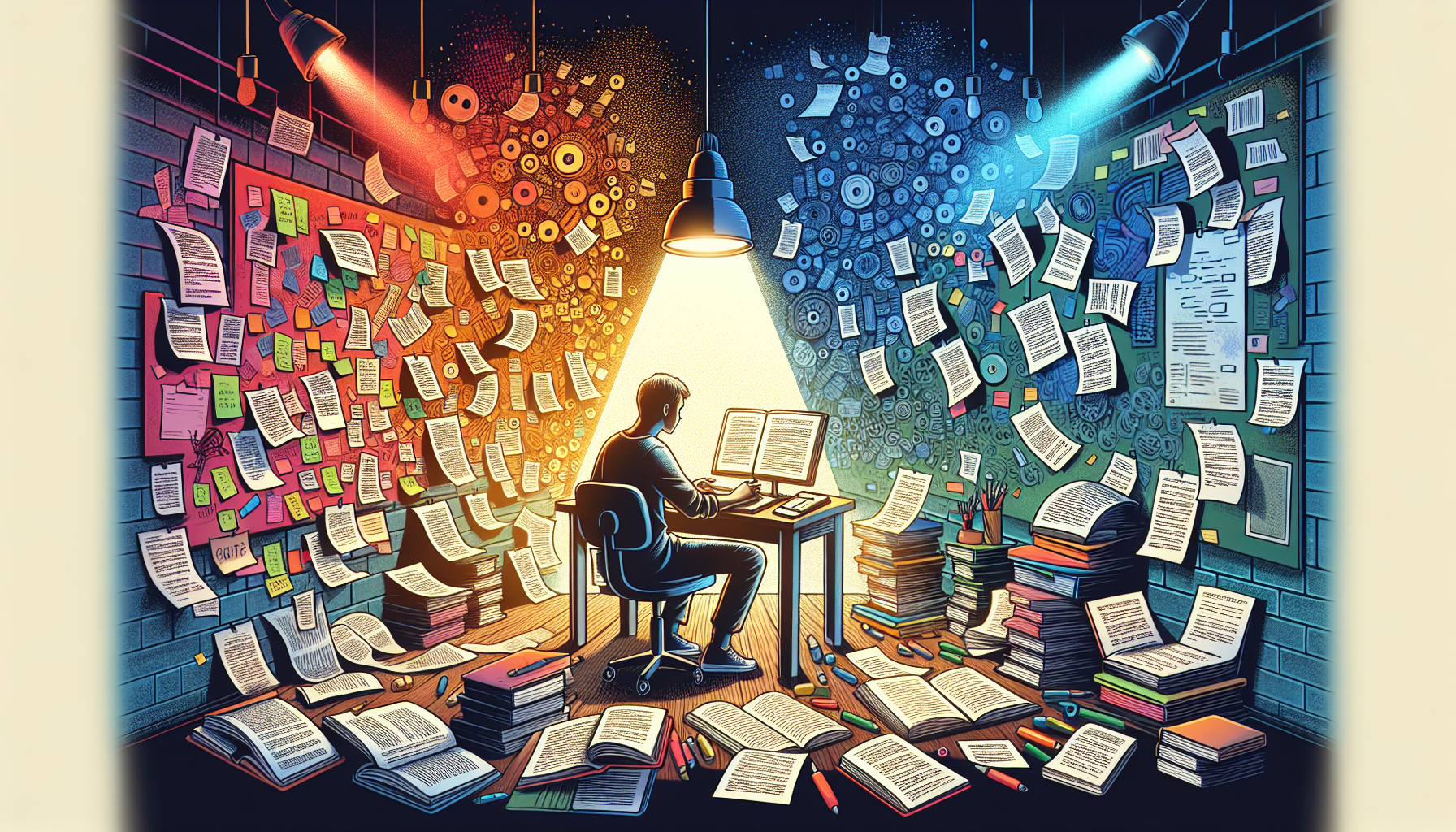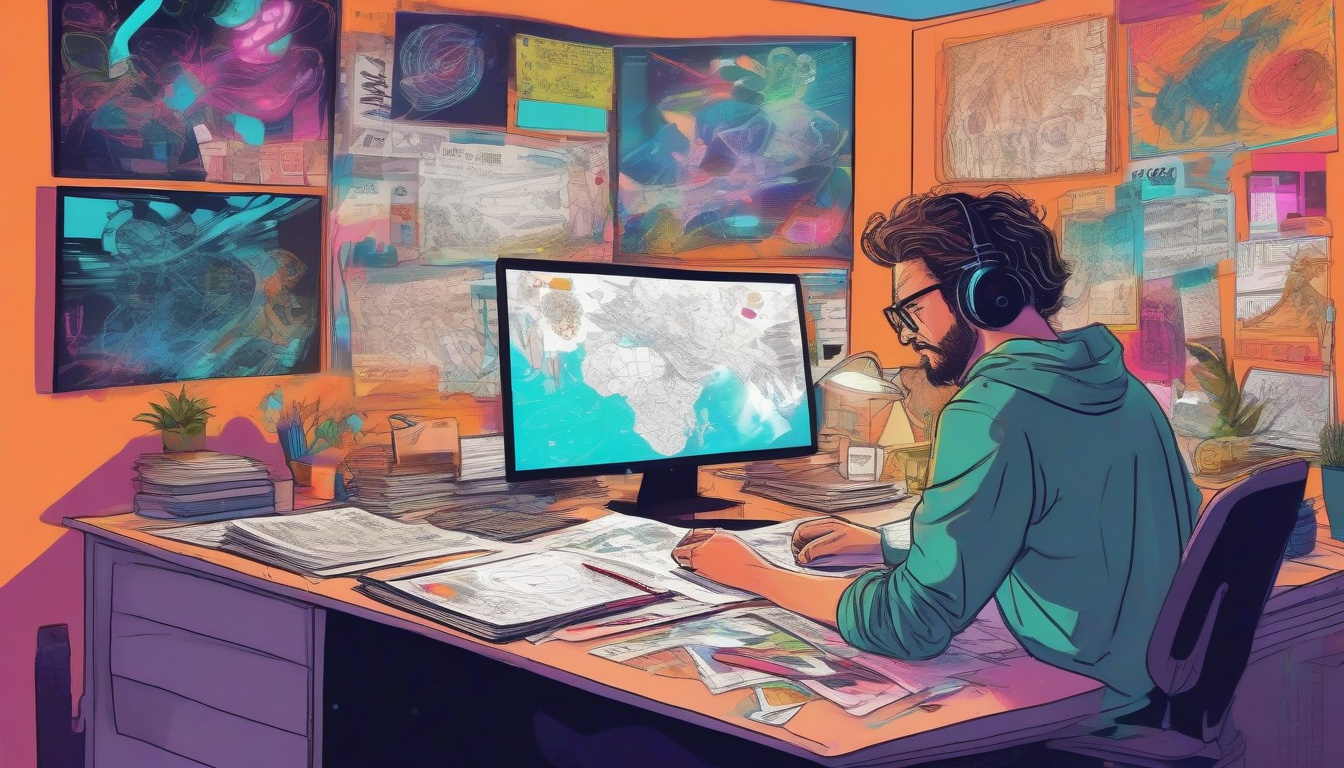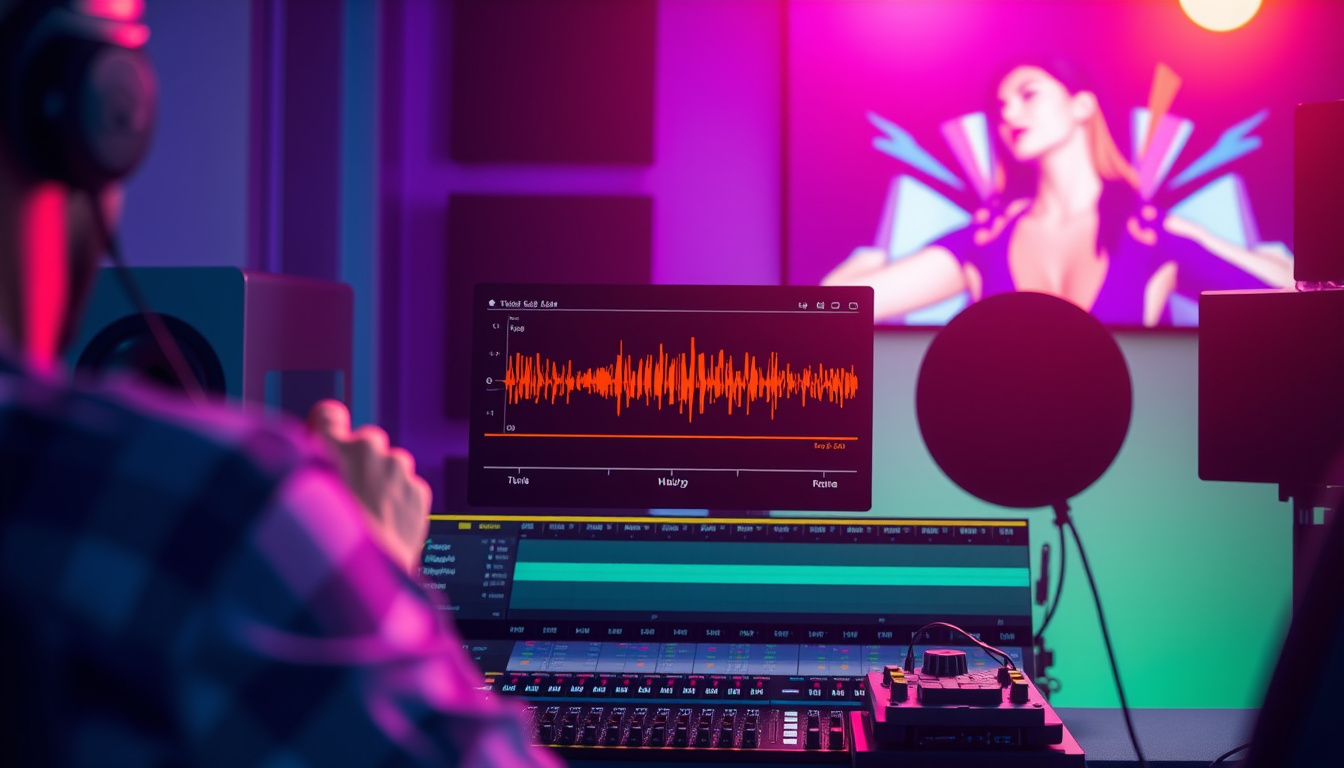Discovering the Formula for Screenplay Success
In my journey as a screenwriter, I’ve traversed the steep learning curve from novice to experienced writer, encountering countless obstacles and moments of enlightenment along the way. What I’ve discovered is that enhancing a screenplay quickly does not necessarily mean compromising on quality. Rather, it’s about focusing on key elements that can transform a good script into a great one, and doing so efficiently.
Embracing Structure and Conciseness
My earliest scripts were bulky, filled with unnecessary descriptions and dialogue that, albeit poetic, hindered the pace of the story. Over time, I learned the value of structure—of crafting a tight narrative arc that guides the reader through the story effortlessly. The three-act structure wasn’t just a template; it was a roadmap that provided clarity not just to me, but to my audience. Simplifying scenes to their essence without excessive imagery or dialogue became my mantra, ensuring that each word on the page had a purpose.
Feedback as a Catalyst for Development
The turning point in my screenwriting journey was understanding the importance of constructive criticism. Early on, I was hesitant to share my drafts, fearing rejection or harsh criticism. However, letting go of my ego and embracing feedback was transformative. Peer reviews, workshops, and mentor feedback became invaluable tools in quickly enhancing my scripts. They offered perspectives I hadn’t considered, revealing redundancies and gaps in my stories I was too close to see.
Investing in Characters and Dialogue
As my writing matured, I realized the power of well-developed characters and authentic dialogue. Characters are the heart and soul of any screenplay, and if they aren’t fully realized, the story suffers. I began investing more time in understanding their backstories, motivations, and flaws, even if most of these details never made it to the final script. This exercise added depth to my characters, making them more relatable and their journeys more compelling.
Similarly, dialogue refinement became a crucial aspect of my script-enhancing process. I moved away from on-the-nose exposition, allowing characters’ actions and interactions to convey the story. This not only made the screenplay more engaging but also quickened the pace, enabling readers to delve deeper into the narrative without unnecessary explanations slowing them down.
Leveraging Technology and Writing Tools
Another leap in my screenplay enhancement process came with the integration of technology. Scriptwriting software, online resources for research, and digital storytelling tools opened up new avenues for creativity and efficiency. Features like automated formatting, cloud-based collaboration, and virtual workshops allowed me to focus on the creative aspect of writing while managing the technicalities with ease. Additionally, using technology for storyboarding and outlining before diving into the scriptwriting process helped streamline my thoughts and structure my narratives more coherently.
The journey of enhancing screenplays is ongoing, fraught with challenges but also ripe with opportunities for growth and innovation. By focusing on structure, embracing feedback, investing in character development, refining dialogue, and leveraging technology, I’ve not only been able to improve my scripts quickly but also deepen my understanding and appreciation for the art of screenwriting. This journey has taught me that every script, no matter how rough at the beginning, holds the potential for greatness. The key is to be open to learning, adapting, and always striving for better.







